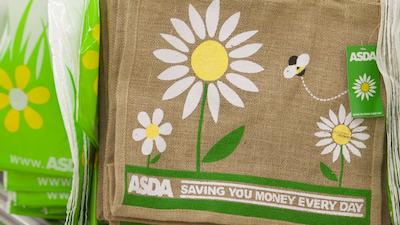Asda, Walmart’s Leeds-based subsidiary, said on Tuesday its first-quarter like for like sales, excluding petrol, increased 3.5% on the same period of 2019.
The three-month period to March 31, 2020, incorporates the weeks of “stock up” activity seen across the UK before lockdown on March 23.
Asda CEO Roger Burnley said: “… 90% of customers told us they are worried about a depression in the economy.”
The supermarket experienced a surge in demand for home shopping deliveries, with Asda.com receiving more than 3,500 visits per minute during the week starting March 18.
Asda noted a significant decline in demand for non-essential items “such as fashion, fuel and general merchandise” and was required to close 33 of its Living Stores in March in response to Government guidance on non-essential retail.
The supermarket said it also saw its smaller stores, located in the heart of communities, perform strongly as customers preferred to shop locally and avoid travel during the early weeks of lockdown.
Burnley said: “It has become increasingly clear that Covid-19 is set to be part of our lives for months to come and we know that customers have moved on from an initial worry about the virus, to more longer term concerns about the implications of lockdown on their family, wellbeing and finances.
“And, as more people return to work, they are juggling the demands of cooking more and having less time to shop for groceries.
“Our latest income tracker data shows that household incomes declined 0.6% in March, the first drop since 2017 and 90% of customers told us they are worried about a depression in the economy.
“Whilst safety is still a major focus for customers, three quarters tell us they are also increasingly concerned about the price of groceries and are looking for value – and we can reassure them that Asda will meet their needs on both.
“However long Covid-19 is with us, we will continue to offer great value to customers, as well as investing in doing the right things to protect our customers, our colleagues and our communities — and fulfil our vital role in feeding the nation.”
